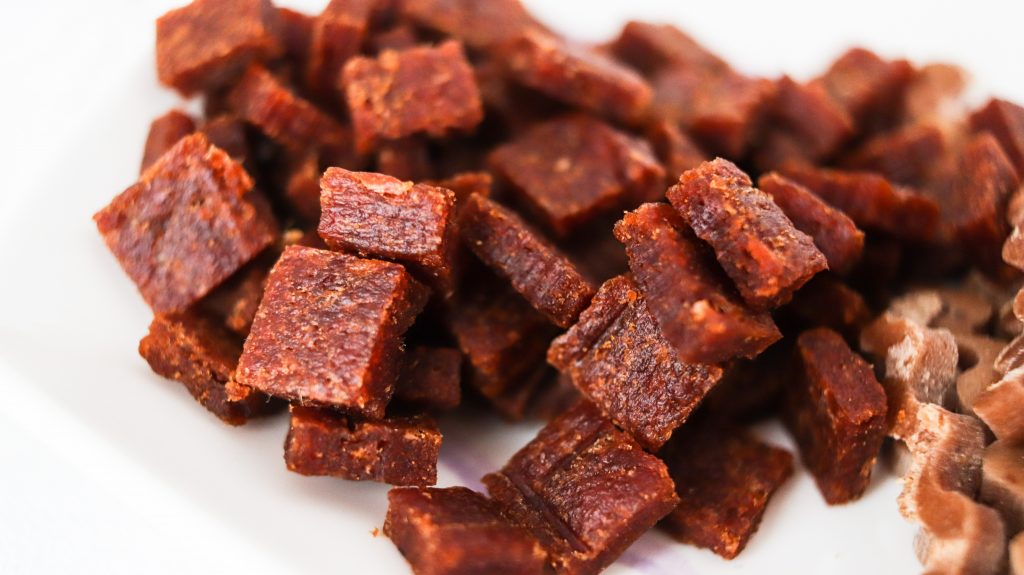In today’s health-conscious world, organic products are big business, whether it’s clothing made of natural fibers or foods produced without the aid of chemicals. People who switch to organic foods often report health benefits in the form of higher energy levels, shinier hair and clearer skin.
But, organic food is not just for humans. In the wake of a nearly industry-wide recall, “organic” is also a word heard more and more often among pet food consumers, despite the fact that even an organic pet food company or two were affected by that recall. In fact, the Organic Trade Association reported that organic pet food sales are growing at nearly three times the rate of organic food sales for humans.
Some pet owners may wonder whether an organic diet is truly as beneficial for their pets as it is for them. Switching your pet to an organic diet may, indeed, be a bit more complex than simply going out and buying a regular good-quality food at any supermarket. It’s also going to cost a little more — sometimes as much as twice the cost of regular, non-organic pet food — but it may pay dividends when you begin to notice some of the following changes in your pet.
Healthy weight — Organic pet foods contain fewer fillers and more superior-quality ingredients, which is one, big reason they cost more. In this case, you do get what you pay for, and what you pay for is a slimmer, healthier pet. Because organic foods are usually more filling, pets tend to eat less of them, helping them to shed extra pounds without being put on a strict diet.
Weight is an obvious change, but its importance can’t be discounted. Dogs, cats, and other pets are less likely to develop diseases such as diabetes, as well as back and hip problems, if they’re at their optimum weight. In addition, pets at healthy weights are more energetic and playful overall than pets who are overweight.
Fewer stomach and digestive problems — The lack of artificial ingredients and the use of higher-quality proteins and grains combine to make organic pet foods more digestible. Often, grains such as barley and oats are used in these foods, along with protein sources like chicken, turkey and lamb. It’s true that these same ingredients will turn up in many grocery store brands of pet food as well, but the difference once again is quality. The meats and poultry used in organic pet foods are of a quality suitable even for human consumption, and the barley and oats are usually whole grain. Cutting out fillers and chemical additives also make organic pet foods easier for your pet’s stomach to take. And the more digestible the food, the more nutrients pets are able to absorb from it.
Better skin condition –– This might seem like a trivial concern, but any owner who has tried and failed to find a cure for a pet’s itchy, irritating skin problems and allergies, improving their animal’s skin is a top priority. If specially formulated shampoos and dips don’t help, and medications aren’t having much of an effect, switching to organic pet food just might do the trick.
Organic foods don’t contain chemicals, flavor enhancers or artificial colors which are often found in other commercial foods. All of these things can trigger skin ailments and allergic reactions which are resistant to treatments, but simply eliminating them from your pet’s diet could have a noticeable benefit; and it should be a long-term improvement, so long as the pet remains on his or her organic diet.
Longer life expectancy — It just makes sense that if a pet is in better physical condition, free of allergens and boasting high levels of energy, then he or she is probably pretty healthy. Organic foods can help pets stay healthier for longer, extending their lives while boosting the quality of those lives as well. What should pet food include?
Organic or not, there are certain ingredients that pet foods should include to ensure that it meets all of the animal’s nutrition requirements. Pets, like people, need to eat balanced diets in order to maintain good health. Every pet is different, so always make sure to research exactly which nutrients your pet needs and which foods contain them.
Obviously, water is essential to humans and pets alike, and a deficiency of this essential component can have serious repercussions for your pet. Foods usually contain some water, but making a fresh supply available at all times is crucial to your pet’s overall health. According to the American Society for Prevention of Cruelty to Animals Web site, even a 15-percent water deficiency can result in a pet’s death. Insufficient water intake can also lead to growth and reproductive troubles, as well as having an overall effect on your pet’s activity level.
When it comes to the food itself, animals need many of the same nutrients as humans. They, too, require various vitamins to help maintain metabolic function and minerals to aid in building strong bones and teeth and also in maintaining a healthy metabolism. Be careful of vitamins A and D, however — too much of these substances can be harmful to certain animals.
Pets also need a diet that includes carbohydrates and fiber, which will promote reproductive and intestinal health. Make sure the fiber has low fermentability, though, at least in the case of dogs and cats. Highly fermentable fibers can cause gas and other side effects.
Fats and fatty acids are necessary ingredients in most pet foods as well. Fatty acids like omega-6 and omega-3 help to heal inflammations in the joints, skin and intestines. Fats are a source of energy and also serve to protect and insulate the internal organs. Fats can also help your pet’s body break down and absorb certain vitamins and minerals.
One of the most crucial aspects of any animal’s diet is protein. Proteins are the building blocks of cells, organs, tissues, hormones, enzymes and even the antibodies that help to fight illness. They are necessary for the growth and reproduction of healthy cells, as well as their repair and maintenance. Amino acids are, in turn, the building materials of proteins, and they are divided into essential amino acids and non-essential amino acids. Non-essentials, as the name suggests, don’t need to be included in your pet’s food, as they can be synthesized by his or her own body. Essential amino acids, though, must be supplied by what you feed your pet.
Beef, chicken, turkey, lamb, cooked eggs and fish are all good sources of essential amino acids. Your pet can also get protein from cereal, vegetables and soy, though the animal-based proteins are more complete in terms of essential amino acids.
There are a few essential amino acids which are specific to certain animals’ dietary needs. Linoleic acid, for instance, is needed by both cats and dogs, while taurine is an essential part of the feline diet.
Where do I find organic pet foods?
If you want to begin feeding your pet an organic diet, you have two options. You can prepare your pet’s food yourself, or you can purchase organic food from several companies.
Should you choose to cook your pet’s food yourself, you’ll need to pay close attention to his or her dietary requirements. Consult your veterinarian before going this route to make sure you’ll be able to provide a balanced, healthy diet for your pet. If you’re a dog or cat owner, the following recipes have met with approval from some furry taste-testers.
Homemade Cat Food
Chop or grind 2 cups of cooked chicken into small pieces. Mix in 1/4 cup of grated carrots, then add a cup of cooked brown rice to the chicken and carrot mixture. If you have any fat left from the chicken, spoon a couple of teaspoons over the mix for flavor.
Homemade Dog Food
Cut a small apple into little pieces and blend it with 2 tablespoons of plain yogurt, 3 cups of cooked oatmeal and 2 cups of cooked ground beef. Both dishes should be served at room temperature.
The following are just a few stores and companies that offer organic pet foods. Please check with your veterinarian before purchasing an organic pet product to be sure that it meets all of your pet’s nutritional requirements. Also, check the list of recalled foods, as even certain organic foods were affected.
* The Blue Buffalo Company
* Castor & Pollux Pet Works
* Mustard Seed Market & Cafe (northeast Ohio only)
* Natura Pet Products
* Natural Balance
* Nature’s Recipe
* Newman’s Own Organics
* Only Natural Pet Store (online)
* Veganpet Food
* Wysong


